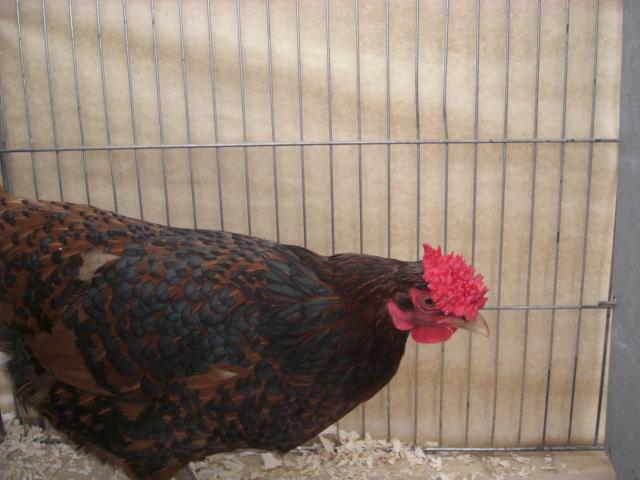- Thread starter
- #11
Quote:
Your answer is sensible, and in different circumstances what I would most likely want to do, but unfortunately not an option here. If I did have the option to buy a different top quality rooster, I would be taking it. This is a rare breed that nearly died out, the different colours were crossed together as a last resort to keep the breed alive, now they don't breed true and from a high quality pair, you might get one out of every 20 or 30 chicks that's worth keeping. If I did have 300 home bred hens to select from, I'd be lucky to find a dozen that were good enough to keep. And I don't mean a dozen excellent ones out of a hundred or so good ones. I mean a dozen out of 300 that barely just turn out the right colour! The wastage is huge and it's hard enough trying to find even half decent examples of the breed so even if I could find another rooster, I'd be extremely wary of introducing it unless I knew its family tree. All of these birds are related in one way or another anyway, so an 'unrelated trio' just isn't going to happen.
I really just want to breed from what I've already got and not introduce new and unknown blood until I absolutely have to.
Edit: I already HAVE paid the money to buy the best trio possible. We don't have commercial hatcheries over here for pure breeds the way you do in the US. Our commercial hatcheries tend to produce hybrid layers, that's all. So we don't really have anything that equates to what you'd call 'hatchery quality'. Our equivalent would just be lesser quality birds bred by folk who weren't as fussy about various traits etc I suppose...
Your answer is sensible, and in different circumstances what I would most likely want to do, but unfortunately not an option here. If I did have the option to buy a different top quality rooster, I would be taking it. This is a rare breed that nearly died out, the different colours were crossed together as a last resort to keep the breed alive, now they don't breed true and from a high quality pair, you might get one out of every 20 or 30 chicks that's worth keeping. If I did have 300 home bred hens to select from, I'd be lucky to find a dozen that were good enough to keep. And I don't mean a dozen excellent ones out of a hundred or so good ones. I mean a dozen out of 300 that barely just turn out the right colour! The wastage is huge and it's hard enough trying to find even half decent examples of the breed so even if I could find another rooster, I'd be extremely wary of introducing it unless I knew its family tree. All of these birds are related in one way or another anyway, so an 'unrelated trio' just isn't going to happen.
I really just want to breed from what I've already got and not introduce new and unknown blood until I absolutely have to.
Edit: I already HAVE paid the money to buy the best trio possible. We don't have commercial hatcheries over here for pure breeds the way you do in the US. Our commercial hatcheries tend to produce hybrid layers, that's all. So we don't really have anything that equates to what you'd call 'hatchery quality'. Our equivalent would just be lesser quality birds bred by folk who weren't as fussy about various traits etc I suppose...
Last edited:


